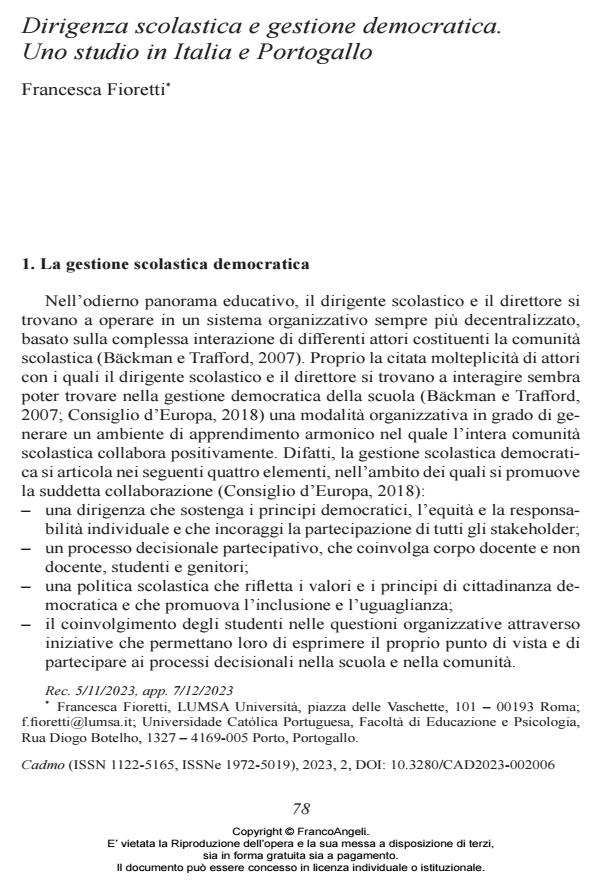Leadership and democratic school governance. A study in Italy and Portugal
Journal title CADMO
Author/s Francesca Fioretti
Publishing Year 2024 Issue 2023/2
Language Italian Pages 15 P. 78-92 File size 202 KB
DOI 10.3280/CAD2023-002006
DOI is like a bar code for intellectual property: to have more infomation
click here
Below, you can see the article first page
If you want to buy this article in PDF format, you can do it, following the instructions to buy download credits

FrancoAngeli is member of Publishers International Linking Association, Inc (PILA), a not-for-profit association which run the CrossRef service enabling links to and from online scholarly content.
In democratic school governance, characterized by participative decisionmaking, the Principal occupies a central role in fostering the creation of an organizational system that can implement school community collaboration and student learning outcomes. With reference to the current national legislation, the present study carried out in Italy and Portugal offers a contribution to research on the role of the participation of the school community in school governance. The analysis conducted on a total of eight semi-structured interviews with one Italian Vice Principal, three Italian Principals and four Portuguese Principals of lower secondary schools is reported. The results show operational strategies implemented at the initiative of schools that can promote collaborative and democratic school governance through the active involvement of the school community in the decision-making process.
Keywords: leadership, governance, decision-making, participation, collaboration.
Francesca Fioretti, Dirigenza scolastica e gestione democratica. Uno studio in Italia e Portogallo in "CADMO" 2/2023, pp 78-92, DOI: 10.3280/CAD2023-002006